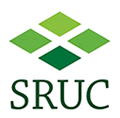There is a growing need to map and monitor peatland condition in an effort to preserve vital ecosystem services and mitigate climate change. Large-scale, frequent and robust monitoring is essential to enable the calculation of greenhouse gas inventories, planning and evaluation of restoration projects, and understanding and mitigating the effects of climate change and other drivers on peatland condition.
However, there is no standardised remote sensing methodology for monitoring peatland condition which is applied on either UK or multinational levels, and although there are field-based methods (e.g., IUCN Peatland Code), these are not feasible at the spatio-temporal scales required. Remote sensing techniques, driven by sensor and data processing developments, have the potential to overcome the spatio-temporal limitations of conventional field surveys while providing a robust and repeatable methodology for peatland condition monitoring.
Recent peatland remote sensing research has primarily focused on monitoring individual aspects of peatland condition (i.e., subsidence, vegetation cover, erosion features) from single sensors. Though beneficial, these singular metrics can limit the ability to compare data across peatland sites and can be highly specific to individual datasets, decreasing the overall robustness of the methodology. This approach also limits the ability to fit peatland sites into pre-existing classification categories, inhibiting the ability for comparison and validation between sites and datasets.
A multi-sensor approach, involving multiple sensor types (i.e., LiDAR, Optical, Radar) and sensor resolutions, can assist in avoiding the barriers associated with the use of a single sensor. For instance, a monitoring framework utilising Synthetic Aperture Radar would allow for peat elevation and volume change identification under cloud cover, whilst ultra-high resolution imagery and LiDAR can assist in identifying small drainage and erosion features which would otherwise be missed. Using such methods, a standardised framework for monitoring peatland condition needs to be developed to map peatlands, that can incorporate the monitoring of all these key individual aspects, whilst allowing comparisons of change over time (and between sites) and analysis of factors such as site biodiversity, ecosystem services and greenhouse gas emissions.
The aims of this PhD are therefore to develop a multimodal approach, utilising remote sensing and other available data for different peatland metrics. These data would be analysed and modelled using a Machine Learning approach in order to identify the optimum analyses methods, and to develop usable workflows for real-world application. The developed approach would aim to be easily replicable, robust, and low cost.
HOW TO APPLY
Application instructions can be found on the SRUC website- PhD opportunities | SRUC
1. Download and complete the Equal opportunities survey and note the completion reference
2. Download and complete the SRUC Application form
3. Download the Academic Reference Request and send to two referees requesting they submit to [Email Address Removed] by the closing date.
Send your application including the following to [Email Address Removed]:
- Completed Application form quoting Ref SRUC/AH
- Academic Qualifications
- English Language Qualification (if applicable)
Unfortunately, due to workload constraints, we cannot consider incomplete applications. Please ensure your application is complete by Thursday 5th January 2023.

 Continue with Facebook
Continue with Facebook



